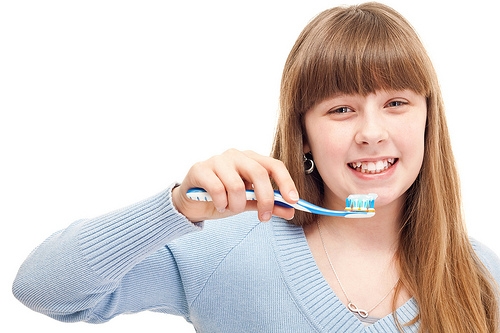Cleaning Your Baby’s Teeth
May 25th, 2022

In the eyes of most parents, nothing is cuter than their baby’s smile. Did you know your little one’s smile (that is, his or her oral health) actually plays a huge role in determining the child’s overall well-being? In order to keep your youngster healthy and smiling, you need to know when and how to take care of those tiny teeth.
Baby teeth aren’t just temporaries that will fall out eventually. They help your baby chew and talk, and they reserve space in the jaw for permanent teeth later on. Since they’re so important, the right time to start dental care is only a few days after your infant is born.
Take a soft, wet washcloth or piece of gauze and gently wipe your baby’s gums. The earlier you begin, the more accustomed your child will become to a daily dental hygiene routine.
Babies that are put to bed with a bottle may be at greater risk for developing cavities. Milk, juice, and any other drinks that contain sugar instigate tooth decay while the child sleeps.
If your baby must go to bed with something, a bottle of water is the healthiest option. Remember to wipe your little one’s gums after each feeding, whether it’s formula from a bottle or breast milk.
As soon as your infant’s first tooth comes in, it’s time to start brushing! Twice a day, take a small amount of toothpaste (about the size of a grain of rice) and brush your son or daughter’s teeth gently in circular motions. As soon as your toddler has multiple teeth that touch one another, floss up and down the sides of the teeth to remove any plaque between them or below the gumline.
Babies’ teeth are prone to cavities and gingivitis, so you’ll want to be on the lookout for telltale signs. Check regularly for red, swollen gums, because this may be an indication of developing gum disease. Discoloration, white spots, or small pits in the teeth can signal a forming cavity.
As long as you follow these simple guidelines and schedule regular dental checkups with Dr. Mark Goedecke at our Mt. Pleasant office, you can help to ensure your baby has a healthy mouth. There is nothing more rewarding than seeing your happy baby’s healthy smile.






